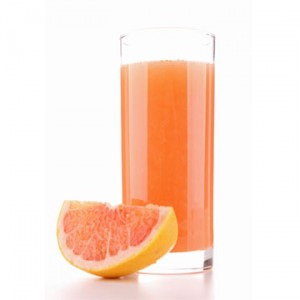
More evidence that low-calorie sweeteners are bad for your health
Studies show that artificial sweeteners can raise the risk of hypertension, metabolic syndrome, type 2 diabetes and heart disease, including stroke.

Our kidneys are complicated and amazing organs that do many essential tasks to keep us healthy.
We each have two of them, each roughly the size of your fist, located deep in the abdomen, beneath the rib cage.
One of their main jobs is to remove toxins and excess water from your blood. In a world that is increasingly polluted that is no small task. Kidneys also produce hormones to help to control your blood pressure, to produce red blood cells and to keep your bones healthy.
They also control levels of many minerals and molecules in your bloodstream including sodium and potassium, and help to control blood acidity. Every day your kidneys carefully control the salt and water in your body so that your blood pressure remains the same.
Kidney disease on the rise
Common kidney problems include stones, infections, a range of abnormalities damage that come under the heading chronic kidney disease (CKD) and even cancer.
According to doctors the prevalence of CKD is increasing dramatically and mostly silently. Various conditions such as high blood pressure and diabetes can cause CKD. Severity can vary but most cases are mild or moderate, occur in older people, do not cause symptoms and do not progress to kidney failure.
In fact, a person can lose up to 90% of their kidney function before experiencing any symptoms. It is estimated that about 1 in 10 people have some form of kidney damage.
People at any stage of CKD have an increased risk of developing heart disease or a stroke. This is why it is important to detect even mild CKD, as treatment may not only slow down the progression of the disease, but also reduces the risk of developing these diseases.
You are at greater risk of kidney disease if you:
Hard to detect
Because the early stages of kidney disease don’t generally have any symptoms, other than perhaps feeling tired. CKD tends to be discovered at a later stage where symptoms can include:
A test called the estimated glomerular filtration rate (eGFR), which measures the volume of blood that is filtered by your kidneys over a given period of time, can be used to detect kidney damage.
How to care for your kidneys
There is no cure for chronic kidney disease so prevention is critical. Some other things you can do to keep your kidneys in top shape include:
Several herbs can also be supportive:
Green tea contains helpful antioxidants and is known to help reduce the risk of kidney stones.
Dandelion is rich in beta-carotene and high in potassium, is a gentle diuretic, and kidney tonic. The roots can be steeped as a tea or coffee substitute, and the leaves eaten raw in salads.
Nettles are high in chlorophyll, which tones and supports the whole body, particularly the urinary and digestive systems. Brew 1 tablespoon of dried nettles to 1 cup hot water.
Other herbs may also be helpful for specific conditions, but remember what may be safe for a person with good kidney health may not be safe for someone with kidney disease. Always consult a qualified practitioner for professional advice.
What else can you do?
In addition to these measures you might try including more citrus and citrus juice in your diet. Citrus contain a phytonutrient called naringenin. Although most citrus fruits such as oranges, tangerines, lemons and limes contain this substance it is found in greatest quantities in grapefruit.
Naringenin is a flavanone, a type of flavonoid, that acts as an antioxidant, free radical scavenger and anti-inflammatory. It also aids the metabolism of carbohydrates and supports immune system function. In addition to being found in citrus fruits there is also naringenin in tomatoes.
Preliminary research in 2013 found that naringenin can reduce the risk of kidney cysts by blocking a protein called PKD2. (It has also been shown protect another important detox organ, your liver; a 2008 study from Harvard showed it may help curb the spread of the hepatitis C virus by interfering with the secretion of the virus from infected cells).
Kidney cysts are sacs of fluid that develop in the kidneys. Most are noncancerous and do not cause complications and often do not require treatment. But some are a result of polycystic kidney disease, which can damage the kidneys and currently has no treatment.
The scientists said that naringenin could be a promising future treatment for the condition.
Keep in mind though that naringenin in grapefruit juice can interact with a number of pharmaceutical drugs, including heart drugs, antihistamines anti-depressants and some immunosupressant and HIV drugs.
If you take any of these medications, be sure to talk to your physician or pharmacist before taking a naringenin supplement or even before you increase the amount of grapefruit or grapefruit juice you eat or drink on a regular basis.

Please subscribe me to your newsletter mailing list. I have read the
privacy statement